
What Are the Alternatives to Foreclosure in Texas?
If you’re facing foreclosure in Texas, you might save your home in different ways. Here are some options:
- Loan Modification: This means changing your loan so your payments are easier to handle. It’s a common way to stop foreclosure in Texas.
- Short Sale: You can sell your house for less than you owe. The lender will take the lower amount and forgive the rest of the debt.
- Deed in Lieu of Foreclosure: You give your house deed to the lender instead of going through foreclosure. This helps you avoid foreclosure and hurting your credit.
Texas foreclosure assistance programs offer support and guidance. Starting early can lead to better outcomes.
Can Loan Modification Help?
Loan modification is a good tool for homeowners who want to keep their homes and avoid foreclosure in Texas. By modifying your loan:
- Your monthly payments might be lower.
- Your loan term can be longer.
- You can switch from an adjustable rate to a fixed-rate mortgage.
Talk to your lender if you think you might miss payments. Acting soon can help stop foreclosure in Texas.
How Does a Short Sale Work?

A short sale means selling your home for less than the mortgage balance. Here’s how it works as a foreclosure alternative in Texas:
- Get Approval: You need your lender’s approval for a short sale.
- Find a Buyer: List your home and find someone willing to pay the short sale price.
- Finish the Sale: The bank takes the money and forgives the leftover debt after the sale.
It impacts your credit, but a short sale is usually better than foreclosure and offers a new start.
What Is a Deed in Lieu of Foreclosure?
In Texas, a deed in lieu of foreclosure lets you transfer your home to the lender. Key points include:
- The lender forgives your mortgage debt.
- It skips the long and stressful foreclosure process.
- There could be tax consequences, so talk to a tax expert.
This option provides a way out without more money problems.
How Does the Texas Foreclosure Timeline Affect Homeowners?
Knowing the Texas foreclosure timeline is important for at-risk homeowners. Understanding key stages can help plan and stop foreclosure:
- Notice of Default: This notice starts the foreclosure process in Texas. Once you receive it, you must take quick action.
- Reinstatement Period: During this time, you can make up missed payments and fees to prevent foreclosure from proceeding.
Researching Texas foreclosure laws can help you understand your rights and options. Acting quickly can help protect your home.
When Do Notices Typically Occur?
Notices usually happen after missing several mortgage payments. Here’s a quick guide to foreclosure notice requirements in Texas:
- Lenders often send a notice after 90 days of missed payments.
- This notice will state what you owe and the steps to prevent foreclosure.
Getting a notice early means there’s still time to look at options like loan modification or short sale.
What Is the Role of the Reinstatement Period?
The reinstatement period in Texas foreclosure allows you to stop foreclosure by paying what’s due. Here’s how it works:
- It’s available until your home is auctioned.
- You can make your mortgage current before losing your home.
Knowing these periods and Texas foreclosure laws can mean the difference between keeping your home and foreclosure. Act fast and seek help if needed.
What Legal Rights Do Texas Homeowners Have During Foreclosure?

In Texas, going through foreclosure can be tough. Here’s what you need to know about your legal rights:
- Texas Foreclosure Laws: These laws explain how the foreclosure process works and how long it takes. Knowing these helps you understand what will happen next.
- Rights During Foreclosure: You must be informed before anything happens. You can also go to court if you think the foreclosure is wrong.
- Foreclosure Prevention Texas: There are ways to stop foreclosure, like changing your loan or finding new financing.
- Homeowner Protection: Some rules protect you from unfair treatment.
- Legal Help: It’s a good idea to talk to a lawyer. They can help you keep your home and protect your rights.
Can Bankruptcy Stop Foreclosure?
Bankruptcy might pause the foreclosure process for a while. Here’s how it works in Texas:
- Bankruptcy and Foreclosure Texas: Filing for bankruptcy can stop foreclosure because of an “automatic stay,” which stops creditors from collecting debts while you’re in bankruptcy.
- Filing for Bankruptcy: This is usually a last resort, but it can give you time to organize your finances.
- Stop the Foreclosure: Bankruptcy might not stop foreclosure forever, but it can give you time to make a plan with your lender.
- Texas Foreclosure Process: Knowing how foreclosure works can help you decide if bankruptcy is right.
What Are the Rights Under Federal Protection Laws?
Federal laws help protect homeowners during foreclosure:
- Federal Protection Laws ensure homeowners are treated fairly everywhere in the U.S.
- Servicemembers Civil Relief Act: This law helps military members by stopping or delaying foreclosures.
- Homeowner Rights: Lenders must follow the rules and give notice before starting foreclosure.
- Foreclosure Defense: You can defend against foreclosure if federal protections are violated.
How Can You Prepare for a Foreclosure Auction in Texas?
You need to do several things to get ready for a foreclosure auction:
- Foreclosure Auction Texas: These auctions are open to the public and occur after foreclosure ends.
- Foreclosure Notice Requirements Texas: You’ll receive a notice before the auction. Read it carefully to know when everything will happen.
- Preparing for Foreclosure Auction: Learn about the property and set a spending limit for bidding.
- Auction Bidding Strategies: Decide your highest bid ahead of time and stick to it.
What Should You Know Before Attending?
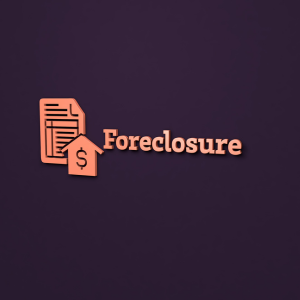
Before you go to a foreclosure auction in Texas, do the following:
- Foreclosure Auction Preparation: Research properties and get your money ready to place bids.
- Texas Foreclosure Laws: Know these laws to understand how the auction works.
- Foreclosure Timeline: Be aware of all the dates and deadlines so you don’t miss out.
- Attending Foreclosure Auctions: Show up early and sign up to bid if needed.
- Legal Procedures: Buying a foreclosed home has legal steps you need to know.
Are There Any Bidding Strategies?
To win at a foreclosure auction, you need a strategy:
- Bidding Strategies: Set a firm budget and don’t go over it.
- Foreclosure Auction Strategies: Attend some auctions to watch and learn before bidding.
- Auction Success Tips: Stick to your budget and avoid getting caught in a bidding fight.
- Auction Bidding Tips: Be patient and wait for a good deal. Not every property is worth it.
- Foreclosure Properties: Research each property to know its value and any problems.
What Are the Common Causes of Foreclosure in Texas?
Foreclosure happens when a person loses their home because they can’t pay the mortgage. In Texas, here are some common reasons why this occurs:
- Financial Hardships: Unexpected expenses or emergencies can make it tough to keep up with the mortgage.
- Employment Status Changes: Losing a job or having work hours cut can quickly reduce income, making it hard to afford the mortgage.
- Mortgage Default: Missing too many payments can lead lenders to take back the home through foreclosure.
Knowing these causes can help homeowners find solutions before it’s too late.
How Do Financial Hardships Lead to Foreclosure?
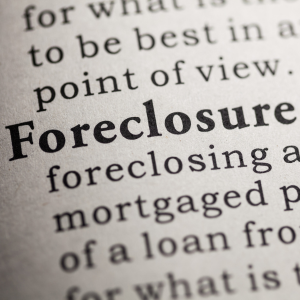
Financial hardships mean struggling to manage money due to sudden changes. This makes paying a mortgage difficult. Here’s how it works:
- Income Loss: Losing a job or facing a pay cut means you might not have enough to cover the mortgage.
- Unexpected Expenses: Big bills like medical costs can take away money meant for the mortgage.
- Rising Living Costs: When living costs go up, but wages don’t, keeping up with expenses becomes hard.
These problems can lead to foreclosure in Texas if not dealt with quickly.
Can Changes in Employment Status Affect Your Mortgage?
Yes, changes in employment status can make paying your mortgage hard:
- Job Loss: Losing your job means no steady paycheck for your mortgage.
- Reduced Income: If your hours or salary are cut, there’s less money for mortgage payments.
- Foreclosure Risk: Without steady income, the chance of missing payments and facing foreclosure goes up.
Talking to your lender can often lead to temporary solutions.
How Do Texas Foreclosure Laws Protect Tenants?
Tenants renting a foreclosed home have rights under Texas laws:
- Tenant Rights: Even in foreclosure, tenants have rights that must be respected.
- Renter Protection: Laws exist to protect renters from unfair eviction.
- Lease Agreements: These contracts should be honored even during foreclosure.
Understanding these protections helps tenants feel safe in their homes.
What Rights Do Tenants Have During and After Foreclosure?
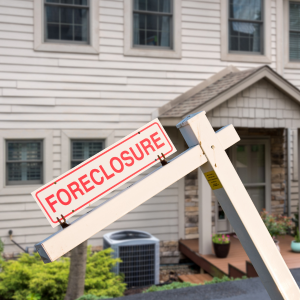
Tenants have rights during and after foreclosure:
- Eviction Protection: They usually can stay until the lease ends, even after foreclosure.
- Post-Foreclosure: New owners must honor existing leases, giving renters stability.
- Lease Continuation: Renters can continue or negotiate lease terms with new owners.
Knowing these rights helps tenants stay in their homes legally.
Are There Specific Considerations for Lease Agreements?
Yes, there are things to note about lease agreements when a property is in foreclosure:
- Foreclosure Impact on Leases: The terms might change, but the lease should generally be honored.
- Tenant-Landlord Relations: Good communication can prevent misunderstandings during foreclosure.
- Legal Considerations for Renters: Tenants should know their lease terms and legal rights.
Being informed helps both tenants and landlords handle foreclosures smoothly.
What Is the Impact of a Foreclosure on Your Credit Score?
When a foreclosure happens, it can hurt your credit score a lot. This is when the bank takes back your house because you can’t keep up with mortgage payments. Here’s how foreclosure can affect you:
- Credit Score Damage: A foreclosure can lower your credit score significantly.
- Credit Report: This stays on your credit report for years, making it harder to get loans in the future.
- Financial Consequences: It can also raise your interest rates and make renting a home difficult.
Foreclosure in Texas has special laws, so understanding them is important if you’re facing this situation.
How Long Does a Foreclosure Stay on Your Credit Report?
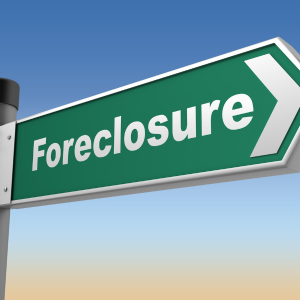
A foreclosure usually stays on your credit report for seven years. Here’s more about it:
- Duration: During this time, lenders will see the foreclosure every time they check your credit history.
- Credit Bureau Reporting: All major credit bureaus will show this on your credit history.
Knowing this timeline can help you plan to recover financially.
Are There Ways to Rebuild Your Credit After Foreclosure?
Yes, there are ways to improve your credit after a foreclosure. Here are some steps you can take:
- Credit Repair: Start by checking your credit report for mistakes and fix them.
- Financial Recovery: Create a budget to manage your expenses.
- Credit Counseling: Talk to a credit counselor for advice on raising your credit score.
- Foreclosure Recovery: Pay bills on time and decrease your debt to rebuild your credit profile.
These actions can help you regain good financial health.
How Can Professional Guidance Aid in Navigating Foreclosures?
Handling a foreclosure alone can be tough. Professional guidance can help:
- Foreclosure Assistance: Experts can explain the foreclosure process and give helpful advice.
- Legal Aid: Lawyers can protect your rights during a foreclosure in Texas.
- Professional Services: They provide tips and resources suited to your needs.
Using these services can offer valuable help as you go through your foreclosure.
What Role Can an Attorney Play?
An attorney can be very helpful during this process:
- Legal Representation: They offer foreclosure defense and negotiate for you.
- Rights Protection: An attorney makes sure the process respects your rights.
- Legal Advice: With their knowledge of Texas foreclosure laws, they give smart guidance.
An attorney can make you feel better and help you make good decisions.
Are Foreclosure Prevention Services Beneficial?
Yes, foreclosure prevention services can be very helpful. Here’s how they assist:
- Prevention Services: They give strategies to avoid foreclosure possibly.
- Financial Counseling: Offers tips to manage your finances better so you don’t default.
- Support Services: Expert help gives solutions specific to Texas foreclosures.
With these resources, you might avoid foreclosure or lessen its impact.
Why Is It Important to Understand Foreclosure Terminology?
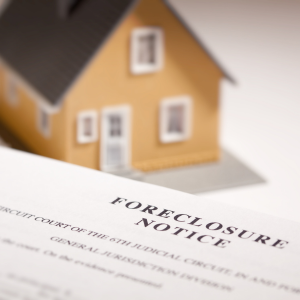
Understanding foreclosure language is critical while owning a house, particularly in Texas. Knowing these words can help you deal with foreclosure. It can aid you if you’re facing foreclosure or considering purchasing a foreclosed home. This type of knowledge also assists you in obtaining the appropriate legal representation when necessary.
What Are Key Terms Every Homeowner Should Know?
Here are some key terms every homeowner should know:
- Judicial Foreclosure Process: This means that the lender has to go to court to sell your home.
- Non-Judicial Foreclosure Texas: In Texas, lenders can often sell the home without going to court.
- Notice of Default Texas: This letter tells you you missed mortgage payments.
- Texas Foreclosure Laws: These are rules in Texas that tell how foreclosures work.
- Deficiency Judgment Texas: If your home sells for less than what you owe, this is the extra money you might have to pay.
- Foreclosure Auction Texas: This is where foreclosed homes are sold to people who bid the highest.
How Can This Knowledge Influence Decision-Making?
Understanding these words and laws allows you to make better decisions concerning your home. You learn about your rights under Texas foreclosure laws. It can also help you get legal representation if you require it. Knowing your alternatives might help you avoid foreclosure and determine whether to maintain or sell your property.
What Post-Foreclosure Options Are Available?
After losing a home to foreclosure, you can think about a few options:
- Foreclosure Alternatives Texas: You might try selling your home through a short sale or giving it back to the lender.
- Texas Foreclosure Assistance Programs: Check out programs in Texas that help people recover from foreclosure.
- Foreclosure Prevention Texas: Learn ways to keep from losing your home in the future and stay a homeowner.
Can You Refinance After a Foreclosure?
You can refinance after a foreclosure, but the process takes time. In Texas, you may have to wait several years before lenders will consider working with you again. You can improve your chances by boosting your credit and finding stable employment.
What Are the Possibilities for Future Homeownership?
Even if foreclosure hurts your credit, you can still own a home later. Consider these steps:
- Texas Real Estate: Learn about the housing market and how it affects you.
- Foreclosure Recovery: Work on fixing your credit score and money habits.
- Rebuilding Credit: Pay bills on time and lower debts to improve your credit.
- Lender Foreclosure Rights Texas: Know the rights lenders have so you’re informed in future deals.
Knowing these things can help you overcome foreclosure issues and move toward regaining ownership of your property. For additional assistance, contact Company That Buys Houses for advice tailored to your needs.
FAQs:
What Is The Process Of Foreclosure On A House In Texas?
In Texas, foreclosure can happen in two ways: judicial (involving the court) and non-judicial (without the court). Most foreclosures are non-judicial. The lender will notify the homeowner about the missed payments. The homeowner has some time to fix the problem. If not settled, the home might be sold at an auction.
How Can Homeowners Prevent Foreclosure In Texas?
Homeowners who are behind on payments can avoid foreclosure by acting fast. They can work with the lender to change the loan terms, create a plan to catch up, or get legal help to understand their rights in Texas. Filing for bankruptcy might also pause foreclosure for a while.
What Are Texas Foreclosure Laws And Procedures?
Texas laws let lenders take back homes if payments are missed. The lender must notify the homeowner about the missed payment. Then, there’s a period to fix the issue. If it’s not fixed, the home may be sold. Knowing these steps can help homeowners manage the process better.
What Rights Do Homeowners Have During A Foreclosure In Texas?
In Texas, homeowners must receive notices and have chances to fix their missed payments. They can also challenge the foreclosure in court or look into options like selling the home or turning over the deed. Getting legal help is a smart idea to understand their rights.
Are There Any Programs Available To Assist With Stopping Foreclosure In Texas?
Yes, there are programs to help stop foreclosure in Texas. These include state programs, counseling services, and federal protections from HUD. Homeowners should check all available help to find what works best for them.
How Does A Deficiency Judgment Work In Texas Foreclosure Cases?
If a home sells for less than what’s owed, the lender might ask for the rest through a deficiency judgment. Texas has rules on how these judgments are made and collected.
What Is The Impact Of Filing For Bankruptcy On A Foreclosure In Texas?
Filing for bankruptcy can temporarily stop foreclosure because of an automatic pause. This gives homeowners more time to talk to lenders or fix their finances. Since this is complex, consulting a professional is very important.
Are There Special Foreclosure Considerations For Military Members In Texas?
Yes, military members in Texas have extra protections under state and federal laws. These laws might delay foreclosure and offer more safeguards through the Servicemembers Civil Relief Act. Military members should seek legal advice to know all their options.
Key Insights
- Foreclosure in Texas can happen in two ways: nonjudicial and judicial. Texas foreclosure laws let lenders sell the property through a trustee sale or take it to court.
- Borrowers can try to stop foreclosure by filing for bankruptcy, getting foreclosure prevention assistance, or looking into home foreclosure alternatives like modifications or reinstatement periods.
- A deficiency judgment might happen if the property sale doesn’t pay off the debt. Texas has rules for how these judgments work and what rights borrowers have.
- The foreclosure process in Texas usually starts with 120 days to fix the default, after which lenders might send a foreclosure notice.
- Texas real estate foreclosure laws protect military members under the Servicemembers Civil Relief Act, which can delay foreclosures.
- In Texas, a house is more than just the building; it includes property liens and possible tax foreclosure issues.
- Knowing about equity and home equity loans is important as they can affect a foreclosure process.
- Texas laws about HOA foreclosures and tax liens show why it’s good to know property and housing foreclosure rules.
- Homeowners facing foreclosure should consider using foreclosure assistance programs or talking to foreclosure attorneys to learn how to avoid foreclosure.
- Be careful of foreclosure scams in Texas. Always check if the company offering help is real.
Want to know the best way to sell a house in Texas? We’ve got you covered! Whether you’re in Fort Worth, Houston, San Antonio, Dallas, Austin, El Paso, or any surrounding area, these insights apply to homeowners across the state. Plus, if you’re looking for a fast and hassle-free sale, we buy houses in any condition. To learn more or get personalized assistance, Contact Us at (817) 623-5054.


